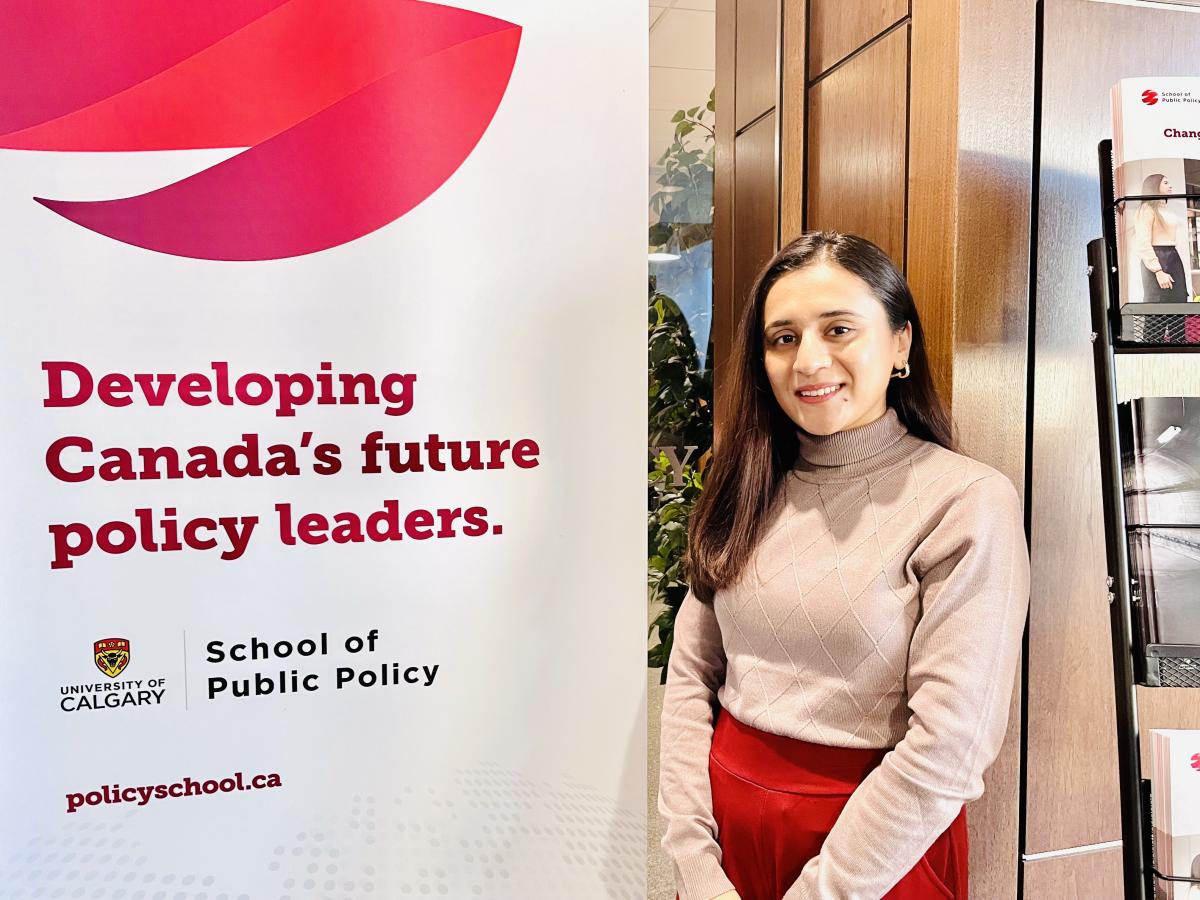The ability to work across disciplines is key to jobs today, Sabrina Gulab, a recent Husker graduate, told NRT students by Zoom recently.
“When you are a Ph.D. student, you think that whatever you are doing for your Ph.D. research you will continue doing similar things, but when you move to the job, and even for the postdoc, you don't do exactly what you have been doing,” Gulab said.
After graduating from Nebraska in August 2023 with a doctorate degree in economics, Gulab took a postdoctoral position with the Simpson Centre in the School of Public Policy at the University of Calgary.

“I'm moving from the econ side to the policy side right now,” she said.
Arriving with economics training from Nebraska and agricultural training from Pakistan before that, Gulab found the Canada position to be a significant change in the knowledge she needed as a researcher.
“I do not have a knowledge of policy, but now that I have been given this project, I'm using my economic background and then I'm doing a lot of literature review in terms of understanding these policies and designing a framework,” she said.
Gulab is working on a three-year project to determine what prevents Canadian farmers from adopting digitalized technologies in crop and cattle production. She also works on a smaller project, making a database of food and agriculture innovations.
In the EPSCoR project she worked on at Nebraska, she carried out similar tasks, surveying ranchers on their attitudes toward adopting a new technology, resilience informatics. She said the interdisciplinarity on the EPSCoR project helped her understand how researchers on her current projects are working but she has had to stay flexible in applying what she knows from her doctorate work.
“I cannot be very strict and rigid about, ‘OK, I am a behavioral economist, so I will just do the behavior econ work,’” she said.
She has found ways in her one-and-a-half months as a postdoctoral researcher to work around not having a policy background, she said.
“You always have room for learning different things, and it's just you have to be very welcoming, and you have to be very flexible for those things,” she said.
The NRT students she spoke to came from four STEM departments, and since the NRT started in 2018, it has supported 27 students from 10 departments.
The students have worked together across disciplines on projects, but the NRT has never had an economics student. Craig Allen, director of the NRT and of the EPSCoR project Gulab worked on, decided to bring her in as a speaker to expose the NRT students to economic concepts.
Gulab spoke about differences from neoclassical economics to behavioral economics and the cognitive biases that cause people to make irrational economic decisions.
She said the best thing she learned from the EPSCoR project at Nebraska was how to work on big teams. The large, interdisciplinary EPSCoR team prepared her to communicate across disciplines with researchers on her Canadian teams, she said.
“I don't face any hard time communicating with those individuals,” she said.
Communication can be a difficulty on interdisciplinary teams, and Gulab said researchers may also sense they are in competition and begin doubting themselves.
“Sometimes the returns of the particular research are really late. It takes a lot of time, and for the other individuals, it's pretty quick. And then you kind of self-doubt yourself, like whether you’re doing enough or why you’re lagging behind,” she said.
She said she has found this to be true especially on interdisciplinary teams with graduate students and postdocs.
“It’s like ‘OK, they're doing a lot, and I’m lagging behind.’ It’s just because the type of work you're doing is different than their type of work,” she said.
If researchers on interdisciplinary teams have trouble communicating with teammates or find other researchers noncommunicative, Gulab suggested they remain flexible.
“I think you have to be flexible and stay understanding,” she said. “I think being noncommunicative is the nature of that particular person. It's not something you should take personally.”
-- Ronica Stromberg, NRT program coordinator


